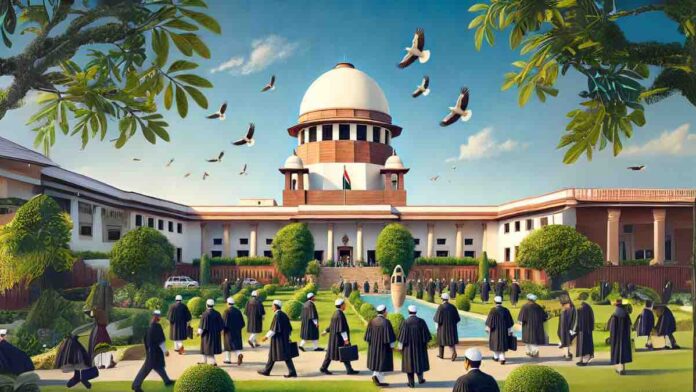The Supreme Court of India, in the case of Samiullah vs. The State of Bihar & Ors., has quashed a 2019 amendment to the Bihar Registration Rules, 2008. The Court ruled that the sub-rules, which empowered registering authorities to refuse registration of sale or gift deeds without proof of mutation (Jamabandi or holding allotment) in
To Read More Please Subscribe to VIP Membership for Unlimited Access to All the Articles, Download Available Copies of Judgments/Order, Acess to Central/State Bare Acts, Advertisement Free Content, Access to More than 4000 Legal Drafts( Readymade Editable Formats of Suits, Petitions, Writs, Legal Notices, Divorce Petitions, 138 Notices, Bail Applications etc.) in Hindi and English.




